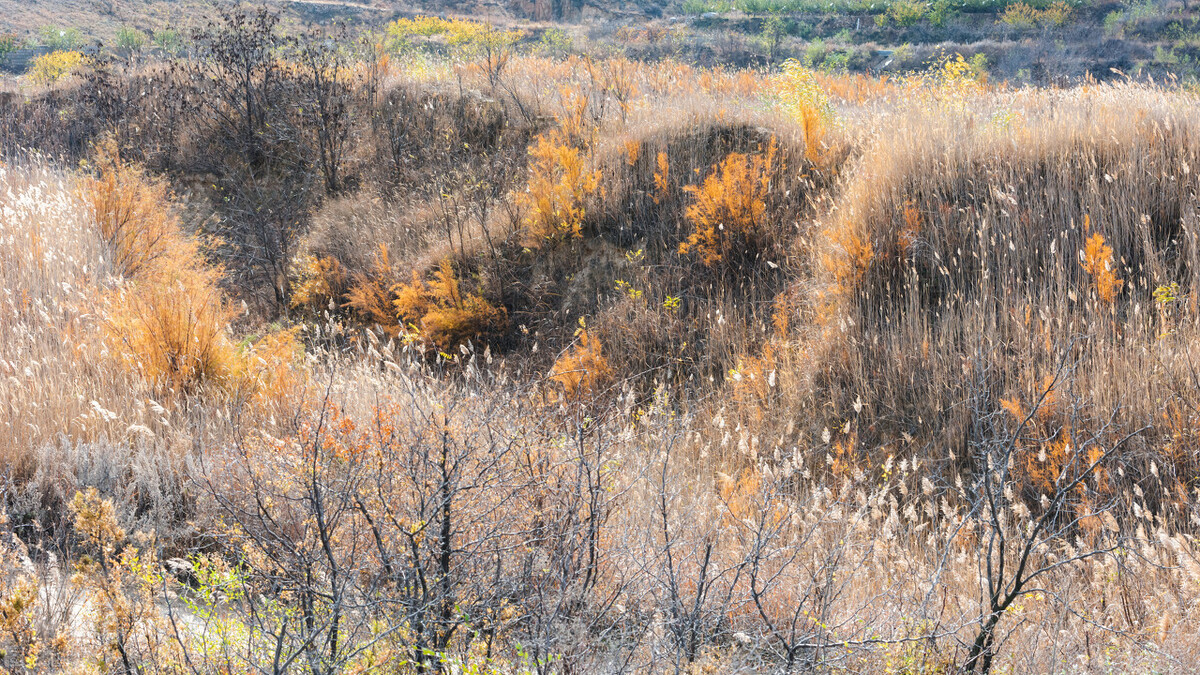Lin Kui, a famous reclusive poet of the Northern Song Dynasty, liked to plant plum blossoms and raise cranes, known as "plum wife crane". In his poem "Mountain Garden Xiaomei", "The shadow is shallow and shallow, and the dark incense floats in the dusk of the moon", the two sentences of the plum blossom are written as dusty and elegant, which is a famous sentence in the poem of Yongmei; and his other poem, "Wing Qiu Jiang", is known as the ancient song of Yong luhua.

It is not so much a chant of reed flowers as a moving depiction of the autumn colors of a river and the peaceful life of fishermen by the river, which can arouse the yearning for life by the water. Lin Kui is lonely and self-righteous, and the trend of idyllic nature is also vividly reflected in it.
In just four short sentences, it depicts the clarity of autumn by the river, the quietness of autumn, and the tranquility of autumn.
Wing Qiu Jiang
Song Lin Kui
The sand-billed heron sleeps, and the water soaks the blue sky without a trace.
Favorite reed flowers after the rain, a pyrotechnic rice fish boat.
The poem begins with an open scene, writing about a vast expanse by the Autumn River, the wind and waves are calm, the water waves are traceless, the sky and water are colorful, and the herons sleep peacefully and peacefully. The water is clear and clear, clear and quiet.
The last two sentences close-up the reed flower after the rain, and the branch of the reed flower, after being washed and washed by the autumn rain, becomes whiter and more loving. After the reeds, a firework rose from the fishing boat, and it was the fisherman who began to cook.
No matter where you go, seeing the cooking smoke rising, it can always make people immediately think of the warmth of home. Therefore, wisps of cooking smoke, whether in the mountains or at the water's edge, are always desirable.
In the past days, the wisps of green smoke that snaked up on the roof were a symbol of home; unfortunately, now, looking at the end of the world, cooking smoke is getting less and less, and we must find, perhaps only from this poem, a wisp of eternal fireworks.
The Tang Dynasty poet Zheng Gu has a poem that also writes about the life of fishermen by the river, writing that the boat flows by the current, where the boat goes is home, and there is no less than a wisp of fireworks, and the last two sentences are also full of life:
"A foot of perch is newly caught, and the children and grandchildren blow fire in the flowers."
It is written that the fisherman has just caught a foot of sea bass, and his children and grandchildren have started a fire among the ogi flowers. Hagi flowers, similar to reed flowers, are plants by the water' edge, and poets often use them to express the life of fishermen along the river. The reed flowers are snow white, the hagi flowers are slightly purple, and when they are gathered into pieces, they are like the sea, undulating with the wind, which is very vast and spectacular.
In Zheng Gu's poems, there is also the helplessness of living in the river by chasing the water, but in Lin Kui's poems, the furniture read is tranquility and peace.
Reed flowers, river water, blue sky, heron sleeping peacefully, living by the water, living by the water, a boat anchored, cooking smoke... This is what the life you yearn for looks like.